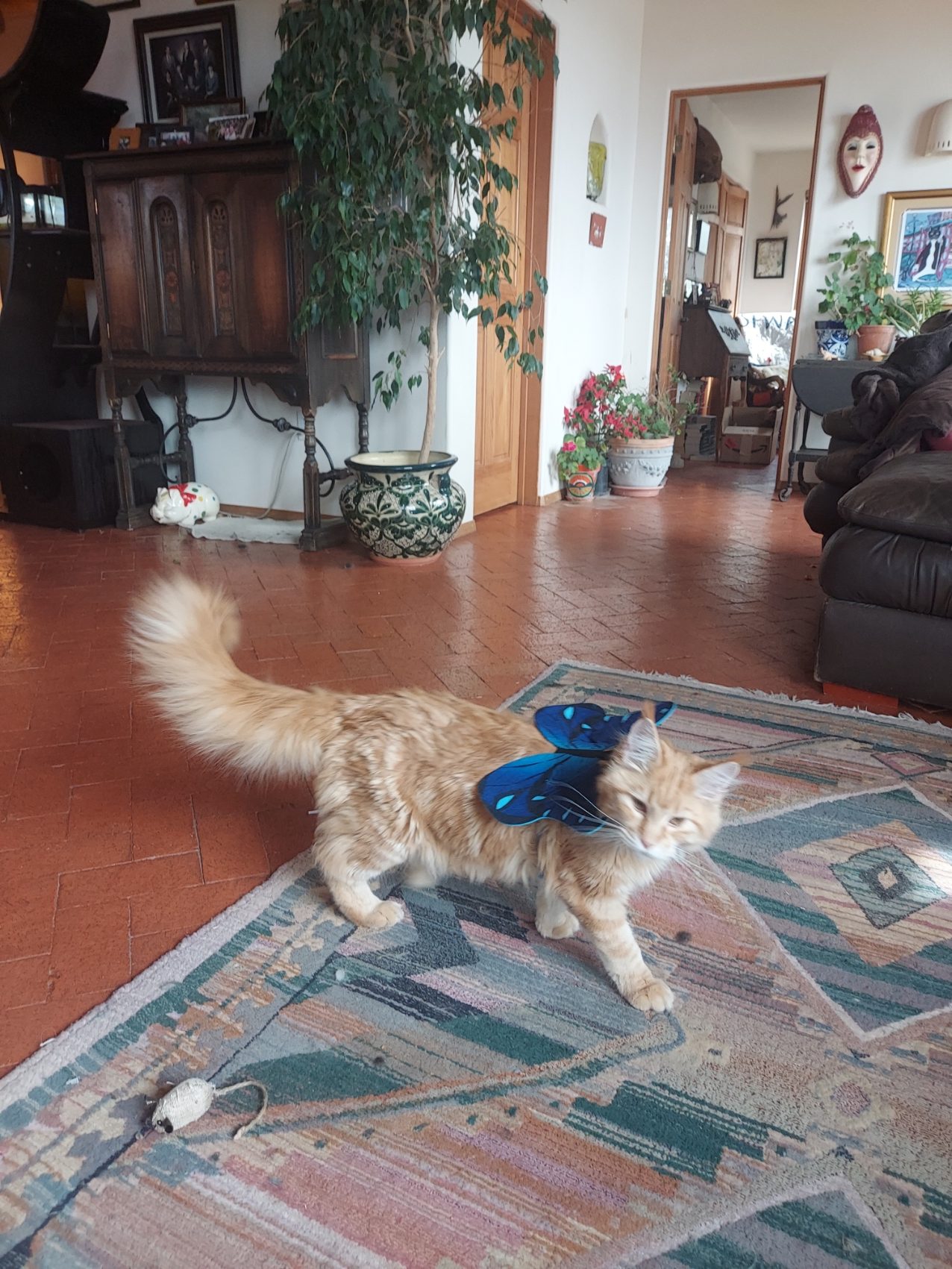
Last night, SFWA did the big online show to announce our Nebula finalists. Killian got to play a special role in a guest appearance as a catterfly, a denizen of Planet Friend. Isn’t he adorable?
But catterflys aren’t our topic at the SFF Seven this week. Pity. Instead, we’re discussing blurbs and how to write better ones.
Now, there’s some confusion out there about exactly what a “blurb” is. In traditional publishing, a blurb is what one author says about another. Along the lines of “Golly gee whiz, this book was better than espresso brownies!” In indie circles, self-published authors tend to call the book description a blurb, whereas the trad community refers to it as the back cover copy or BCC.
Taking my cue from KAK yesterday, I’m going with the BCC definition. Except there’s no freaking way I’m going to write that before I write the book. My writer brain doesn’t work that way. However, I can give advice on how to write your BCC.
The Basics
The BCC structure is very simple and looks like this for a book with romance:
Paragraph 1: What the protagonist wants, why they want it, and why they can’t have it. Should include both external and internal conflicts, if present.
Paragraph 2: What the other protagonist wants, why they want it, and why they can’t have it. Should include both external and internal conflicts, if present.
Paragraph 3: How these two intersect, make each other’s lives more difficult, and present a threat to them ever getting what they want.
Boom. Done.
Level Up
Once you have the basic stuff in there – and I just sketch it in to get the structure and dynamics – then I polish it up. Remember: while you want to give a sense of the story to the reader, you also want to entice. Exact details are less important than posing intriguing questions. Hint at secrets and drama. Resist naming too many names or places. Those aren’t important at this stage. A sense of who the characters are and the challenges they face are what matter. Make sure the genre is clear. Choose vivid, active words. Make it sizzle and excite!
Advanced Tricks
Once you have it polished and seductive, see if you can slip in some keywords for the genre. Think what readers might search for. References tropes. (Then go back and polish so it sounds good.)
